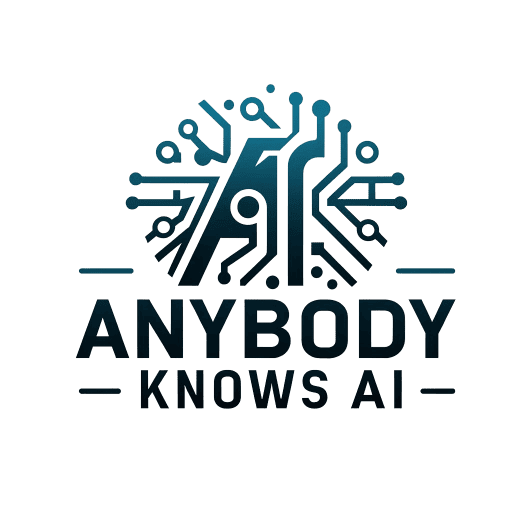Can AI use AI to write a book? Yes, AI has reached the point where it can contribute significantly to book writing. While AI writes books with readable and relevant content, it should not replace the essential human touch needed for authenticity and engagement.
This article delves into how AI tools are transforming the process of writing books, from generating ideas to overcoming writer’s block, enhancing character development, and producing content quickly. We’ll also cover the benefits, drawbacks, and ethical concerns of using AI in writing. By reading this, you’ll learn the practical applications of AI in authorship and what it means for the future of publishing.
Key Takeaways
- AI tools like ChatGPT enhance the writing process by generating ideas, refining characters, and overcoming writer’s block, making them valuable partners for authors. An AI writing tool can further support writers by providing structural assistance and producing content quickly, thus streamlining the overall writing experience.
- Despite concerns about quality and plagiarism, the benefits of AI in writing include improved productivity, cost efficiency, and rapid content generation.
- The future of AI in publishing is bright, offering authors powerful resources for research, book design, and personalized marketing, leading to greater engagement and success.
| Aspect | AI Capabilities | Limitations of AI | Human Input Required |
|---|---|---|---|
| Idea Generation | – Generates numerous ideas and plot suggestions quickly – Provides unique combinations of existing concepts | – May produce unoriginal or incoherent ideas – Lacks true understanding of narrative significance | – Curating and selecting viable ideas – Guiding the thematic direction |
| Writing Drafts | – Produces large amounts of text rapidly – Mimics various writing styles and genres | – Lacks deep understanding of context – May have logical inconsistencies and factual errors | – Editing for coherence and narrative flow – Ensuring factual accuracy |
| Character Development | – Creates basic character profiles based on prompts – Suggests character traits and backgrounds | – Characters may lack depth and growth – Inability to develop complex relationships over time | – Developing complex character arcs – Adding emotional depth and motivations |
| Dialogue | – Generates dialogue that mimics human speech patterns – Can produce conversational exchanges | – May produce unnatural or contextually inappropriate dialogue – Lacks understanding of subtext and nuance | – Refining dialogue for realism and relevance – Injecting personality and tone |
| Editing and Proofreading | – Excellent at spotting grammatical errors – Improves readability and suggests stylistic changes | – Might miss nuanced errors or context-specific issues – Cannot understand the author’s intent | – Final proofreading – Contextual adjustments and style consistency |
| Creativity and Originality | – Combines concepts in novel ways – Generates content based on vast training data | – Lacks genuine creativity and emotional resonance – May inadvertently plagiarize existing works | – Infusing personal style – Ensuring originality and avoiding plagiarism |
| Long-Term Coherence | – Maintains short-term context within paragraphs or sections | – Struggles with consistency over long narratives – Difficulty in maintaining plot threads and character development across chapters | – Ensuring plot consistency – Managing pacing and story arcs |
| Ethical and Legal Considerations | – N/A | – Potential plagiarism – Unclear authorship and copyright issues – Ethical concerns over AI-generated content | – Ensuring compliance with copyright laws – Addressing ethical considerations and transparency with readers |
| Future Prospects | – Ongoing improvements in AI models – Potential for better long-form content generation | – Current models still lack true understanding and creativity – Ethical and legal frameworks lag behind technological advancements | – Continuous human oversight – Shaping AI development to serve as a collaborative tool rather than a replacement |
Main Points:
- Collaboration is Crucial: While AI can assist in various stages of book writing, human creativity, and oversight are essential to producing a coherent, original, and emotionally resonant work.
- Efficiency vs. Originality: AI offers efficiency in generating and editing text but falls short in originality and deep creative insights that stem from human experience.
- Ethical Responsibility: Authors using AI must navigate ethical and legal challenges, ensuring that the content is original and that proper credit and copyrights are maintained.
- Future of Writing: The role of AI in writing is expected to grow, serving as a tool that can augment human creativity rather than replace it.
Examples of AI in Writing:
- “1 the Road” by Ross Goodwin: An experimental novel authored with the assistance of AI, showcasing the potential and limitations of AI-generated long-form content.
- AI-written short stories and articles that demonstrate proficiency in language but often require substantial human editing.
Introduction to AI Writing Tools
In the ever-evolving landscape of technology, AI writing tools have emerged as powerful allies for authors. These tools leverage artificial intelligence to assist with various aspects of the writing process, from generating ideas to refining content. As AI advances, its role in book writing becomes increasingly significant, offering authors innovative ways to enhance their creativity and productivity.
What are AI Writing Tools, and How Do They Work?
AI writing tools are sophisticated software programs designed to aid writers in crafting their narratives. These tools utilize artificial intelligence and machine learning algorithms to analyze vast amounts of data, enabling them to generate coherent and relevant text. By understanding patterns in language and context, AI writing tools can suggest edits, generate entire paragraphs, and even help structure entire chapters. This technology transforms the writing process, making it more efficient and less daunting for authors.
Benefits of Using AI Writing Tools for Book Writing
Integrating AI writing tools into the book writing process offers numerous benefits. One of the most significant advantages is overcoming writer’s block. AI tools can reignite an author’s creativity by generating ideas and suggesting new directions for the story. Additionally, these tools streamline the writing process, allowing authors to produce high-quality content more quickly than traditional methods.
AI writing tools also excel in editing and proofreading, catching and correcting grammatical errors, and suggesting improvements to enhance sentence structure and clarity. This combination of efficiency and quality makes AI an invaluable resource for modern authors.
The Current State of AI in Writing

AI has seamlessly integrated into our daily lives, transforming how we search for information, communicate, and conduct business. AI’s presence is ubiquitous, from auto-correct on our smartphones to virtual assistants like Siri and Alexa. AI tools such as ChatGPT, Midjourney, and Google’s Bard have gained popularity among authors due to their advanced capabilities.
Tools like ChatGPT assist with tasks ranging from essay writing and coding to creative content generation. The latest free version of the software, GPT-4, has even passed the bar exam in the 90th percentile, highlighting its proficiency. Utilizing natural language generation, machine learning, and large language models, these tools produce high-quality text.
In 2023, around 23% of surveyed U.S. authors incorporated AI into their writing processes, reflecting growing acceptance and reliance on these tools. AI writing tools provide features such as generating book ideas, enhancing character development, and overcoming writer’s block, clearly reshaping the writing software landscape.
Can AI Write a Book? Examining the Possibilities

Can AI be used to write an entire book? The answer is a resounding yes, but can AI write books and articles that resonate with readers without human involvement? AI enhances storytelling and efficiency for authors, streamlining the book writing process.
While AI can quickly generate substantial content, engaging readers often requires personalization and refinement. AI assists in overcoming writer’s block, contributes to plot and character development, and creates content rapidly.
Overcoming Writer’s Block with AI
Writer’s block often frustrates authors and halts creativity. AI tools help to overcome writer’s block by offering creative assistance with writing styles and generating prompts that spark new ideas. These tools can quickly produce book ideas, making writer’s block less daunting.
AI enhances creativity and productivity with AI writing software, enabling authors to focus on narrative flow instead of getting stuck on a blank page with just a few clicks. Leveraging AI’s capabilities helps writers maintain momentum and a steady pace in their writing journey.
AI in Plot and Character Development
Compelling plots, compelling narratives, and rich characters are key to engaging storytelling. AI tools suggest plot twists, brainstorm character traits, and provide structural outlines. However, AI often struggles to replicate the emotional depth and coherence human creativity brings to storytelling.
Despite these challenges, AI’s potential in enhancing plot and character development remains significant. Using AI as a brainstorming partner allows authors to explore new narrative avenues and enrich the world by building their stories with innovative ideas.
Generating Content Quickly
A significant advantage of AI writing software is its rapid content generation. Tools like Sudowrite provide user-friendly interfaces for swift story development using advanced algorithms like CHAT GPT-3 variants. These tools can automate repetitive tasks, allowing authors to focus more on the creative aspects of writing.
AI’s support for multiple languages broadens its accessibility, making it a valuable resource for authors worldwide. With a few clicks, writers can have AI algorithms produce substantial content, significantly reducing the time to write an AI book writer. Using AI to write an AI book offers numerous benefits. However, it also raises ethical concerns about authorship and the importance of human judgment in shaping AI-generated content.
Examples of Successful AI-Generated Content
AI-generated content has made impressive strides across various industries, including publishing. For instance, AI has been used to write novels and create entire fiction and non-fiction books, demonstrating its potential in storytelling.
AI-generated content has been employed in marketing and advertising to craft personalized and engaging customer messages. These examples highlight the versatility and effectiveness of AI in generating content that resonates with audiences, proving that AI can be used to write whole books and much more.
Benefits of Using AI for Book Writing

AI integration in book writing offers numerous benefits, including reducing writing time, improving productivity, enhancing content creation, and boosting customer engagement. Using AI to write books can significantly improve creativity and storytelling, facilitating rapid content generation and interconnected narratives that captivate readers.
These advantages include idea generation and brainstorming, editing and proofreading, and cost efficiency.
Idea Generation and Brainstorming
AI enhances brainstorming by offering creative prompts and organizing ideas. Novel writing software simplifies the novel writing software process by providing AI-assisted features that make brainstorming more effective, allowing authors to focus on developing their book ideas and narratives.
By automating repetitive tasks, AI tools allow writers to concentrate on the creative aspects of their work. They balance automation and creativity, which results in a more efficient and enjoyable writing and creative process.
Editing and Proofreading
Editing and proofreading are critical stages where AI tools excel. AI’s natural language processing capabilities enable it to generate error-free content and offer real-time corrections and suggestions for improving clarity. These tools analyze text for tone and coherence, ensuring alignment with the intended audience.
AI-driven editing tools provide contextual and stylistic improvements in different writing styles, resulting in more polished and engaging content. By leveraging these tools, authors can produce higher-quality work without the extensive time traditionally required for editing.
Cost Efficiency
AI offers a cost-effective alternative to traditional writing services. AI writing tools save authors time and money by reducing the need for professional editing and minimizing extensive revisions. This cost efficiency makes AI writing assistants particularly valuable for independent authors and those involved in self-publishing.
Drawbacks and Ethical Concerns of AI Writing

Despite its numerous benefits, AI presents several drawbacks and ethical concerns. Quality and creativity of AI-generated content, plagiarism risks, and data privacy and ownership issues are significant considerations.
The challenges and potential ethical dilemmas that the authors face when using AI tools are explored here.
Plagiarism Risks
A pressing concern in using AI for book writing is the risk of plagiarism. AI may produce content closely resembling existing works, raising issues related to copyright and originality. Authors should view AI-generated content as a starting point for book outlines rather than a final piece of text to avoid potential legal issues.
Using AI writing tools involves risks of duplicate content and copyright ownership disputes. Ensuring content originality and authenticity is paramount to maintaining integrity in the writing process.
Quality and Creativity
AI struggles to capture the nuanced understanding of human emotions and experiences essential for genuine creativity. Creating metaphor, irony, and emotional depth remains a significant challenge for AI writers. Consequently, AI-generated narratives often lack the compelling storytelling elements that engage readers.
This limitation raises concerns about the overall quality and impact of AI-generated narratives. While AI helps generate ideas and organize content, the final creative touch must come from human authors to ensure it resonates with the target audience.
Data Privacy and Ownership
Data privacy and ownership are critical issues when using AI writing tools. Uncertainty regarding the ownership of AI-generated content and differentiating between human and AI intellectual property complicates traditional notions of authorship. These complexities can lead to contentious copyright issues and potential legal liabilities for authors.
Concerns about how AI tools utilize and store user data raise significant privacy issues. Authors must ensure content originality and authenticity and be aware of the legal responsibilities of using AI-generated material.
Mitigating Bias and Fairness in AI Writing
While AI writing tools offer numerous benefits, they also come with challenges concerning bias and fairness. AI systems can inadvertently reflect the biases present in the data they are trained on, leading to content that may be unfair or biased.
To mitigate this, it is crucial to carefully review and edit AI-generated content to ensure it aligns with ethical standards and values. Additionally, developers can design AI writing tools to detect and avoid bias, promoting fairness in the content they generate. Using AI writing tools responsibly, authors can create high-quality, unbiased content that engages and respects their audience.
By understanding and using human intelligence and leveraging the capabilities of AI writing tools, authors can enhance their writing process, overcome common challenges, and produce compelling content. As AI technology evolves, its role in book writing will undoubtedly expand, offering more opportunities for creativity and innovation.
Practical Applications of AI in Book Writing
AI enhances efficiencies and workflows at every step of the publishing process. Practical applications of AI in book writing include research, book design, and marketing.
Using AI for Research
AI tools assist in researching a book’s niche by analyzing search trends and other social media posts for patterns, providing fresh and unique ideas. This capability is a particularly helpful tool for quick turnarounds or when authors need to gather information rapidly.
Leveraging AI for research gives authors insights into popular topics and reader preferences, helping them tailor content to meet market demands, generate content, and enhance the engagement of many readers.
AI for Book Design
AI tools increasingly enhance the visual appeal of books through innovative designs. They can also generate creative cover concepts tailored to a book’s genre and title, creating custom images, graphs, and charts to complement the text. Integrating AI in book design can significantly improve a book’s aesthetics and marketability.
Using AI for book design helps authors ensure their books stand out in a crowded market, attracting more readers and boosting sales to write books.
Marketing Your Book with AI
AI plays a pivotal role in marketing books by incorporating advanced marketing tactics into the overall strategy. AI tools enable more tailored promotional efforts that resonate with target audiences, ensuring the right content reaches the right people.
AI significantly enhances social media promotion, enabling authors to engage readers with personalized content and targeted campaigns. This approach can increase visibility and engagement rates for content written with a tool, ultimately driving book sales through an AI system.
The Future of AI in Publishing

The future of AI in publishing looks promising, empowering authors in writing, marketing, and distribution. AI tools evaluate market demand and profitability by analyzing search trends and social media activity, providing valuable insights for authors. Machine learning and natural language processing are crucial for converting extensive data into actionable insights.
Publishing success depends on rapidly adapting to changing technology and consumer behaviors rather than viewing digital transformation as a final goal. As AI evolves, its impact on the publishing industry will grow, offering exciting possibilities for authors and readers alike.
Summary
In summary, AI offers numerous benefits for book writing, from enhancing productivity and creativity to reducing costs and improving marketing efforts. However, it also presents significant challenges, including risks of plagiarism, quality concerns, and data privacy issues. By understanding these benefits and drawbacks, authors can make informed decisions about integrating AI into their writing processes.
As we look to the future, the potential of AI in publishing is immense. By embracing this technology and navigating its complexities, authors can unlock new opportunities for creativity and success. The writing journey with AI is just beginning, and its possibilities are as vast as the human imagination.
Frequently Asked Questions
Can AI write an entire book on its own?
AI can write an entire book by itself! However, to fully captivate readers, the content usually benefits from some personal touch and refinement.
How can AI help with overcoming writer’s block?
AI can help overcome writer’s block by offering creative prompts and generating book ideas, sparking inspiration when needed!
What are the ethical concerns related to AI writing?
AI writing raises ethical concerns primarily around plagiarism, content quality, and data privacy and ownership challenges. By being mindful of these issues, we can harness AI’s potential responsibly and creatively.
How does AI assist in the editing and proofreading process?
AI enhances editing and proofreading by providing real-time corrections and improving content clarity, ensuring your writing is polished and coherent!
What is the future of AI in publishing?
AI will revolutionize publishing by streamlining writing, marketing, and distribution, making it more efficient and accessible for everyone involved. Embrace this exciting transformation for a brighter, more innovative publishing landscape!







